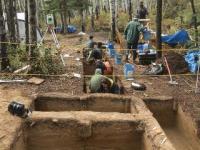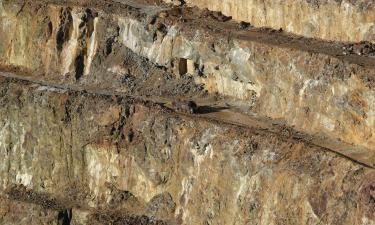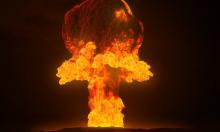Remains of the child since the Ice Age were found in Alaska
 Alaska researchers have found the cremated remains of a 3-year-old child whose parents were among the first immigrants to North America, crossing over the then-existing land bridge from Asia to the New World through the region known as Beringia.
Alaska researchers have found the cremated remains of a 3-year-old child whose parents were among the first immigrants to North America, crossing over the then-existing land bridge from Asia to the New World through the region known as Beringia.
The 11,500-year-old remains were found buried on the banks of the Tanana River in the hearth of what appears to be a summer home for the early Beringians, the earliest known habitation for these first American settlers, according to Los Angeles Times.
The oval fire pit in the home also appears to have been a cooking hearth, based on remains of salmon and other small animals in the area. After the child died, he or she was placed face up in the pit and cremated. The pit and the home were most likely never used again.
"We can infer that they probably abandoned the house when the child was cremated," said Ben A. Potter an archaeologist at the University of Alaska and the study's lead author. "It was the final layer, and there's nothing to indicate that they stirred around the fire anymore."
It isn't clear how many people lived in the home, but given the child's age, there were probably adult women acting as caretakers, Dr. Potter said.
Dr. Potter and his colleagues now hope to retrieve DNA samples from the child's remains and investigate genetic links to other ancient and living communities, New York Times reports.
Subscribe to Pravda.Ru Telegram channel, Facebook, RSS!




